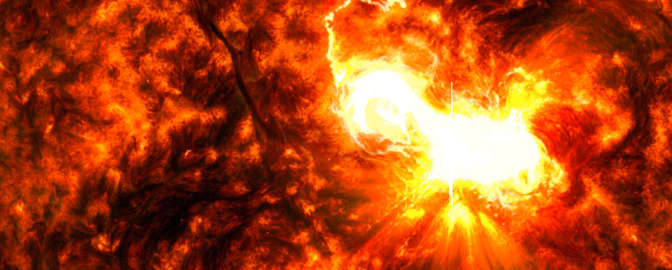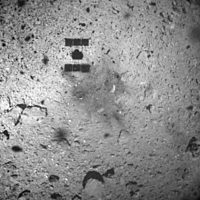All
All
Stories, updates, insights, and original analysis from The Planetary Society.
Asteroids worth getting psyched about
New discoveries from Ryugu, material heading our way from Bennu, and anticipation for a mission to Psyche.
Space rocks!
Rock stars love space, and who can blame them! Take a look at awesome images, exciting science, and the connection between music and exploration.
Cloudy with a chance of life
Looking at the myriad possibilities that may exist within the clouds of Venus.
A cosmic bowling ball spinning through space
Jupiter is a world of extremes, and Venus hints at some mysteries. You can take action to help learn more about these worlds and others.
Making our mark on other worlds
Perseverance’s tracks show where it’s been. You can help decide where we’re going.
The great conjunction! (And how it functions)
Everything you need to know about Saturn and Jupiter’s upcoming conjunction, and more from this week in space exploration.
Wish upon a shooting star (or a descending asteroid sample)
Hayabusa2 brings its sample safely to Earth, and the Geminids meteor shower approaches.
Sample Return Roundup
It's a banner year for sample return missions. In 2020, China, Japan, and the United States are all scheduled to have sample return missions in flight, seeking to retrieve material from near-Earth asteroids, the Moon, and eventually Mars.
Hayabusa2 Lander Mania: Results from MASCOT, Plans for MINERVA-II2
Japan's sample return spacecraft only has about 3 months left at asteroid Ryugu. Its next action will be to drop more stuff on the surface.
Hayabusa2 Nailed its Second Touchdown on Asteroid Ryugu
JAXA's sample collection spacecraft touched down just 60 centimeters away from its aimpoint.
Hayabusa2 makes second touchdown on asteroid Ryugu
Japan's Hayabusa2 spacecraft has touched down on Ryugu for a second time, bagging samples which hopefully contain material from the subsurface of the asteroid.
The June Solstice 2019 Issue of The Planetary Report Is Out!
Two feature articles bring you the excitement and science of exploring two very different representatives of the solar system's smaller worlds.
Treasure Hunting With Hayabusa2
IN THE EARLY hours of 22 February, light was just beginning to brighten the campus of JAXA’s Institute of Space and Astronautical Sciences (ISAS) in Kanagawa, Japan. It should have been a quiet time, but the Hayabusa2 control room was packed with people. We were about to land on an asteroid.
Hayabusa2 drops second target marker, targets artificial crater for sample collection
The reflective softball-sized sphere will give the spacecraft a visual guide during a second potential sample collection.
Hayabusa2 Encounters Snag Trying to Drop Second Target Marker
The spacecraft is healthy and safe, but time is running out to collect a second sample from asteroid Ryugu.
Here’s an Update on Hayabusa2’s Crater-Creating Explosion
Hayabusa2's SCI experiment fell toward Ryugu for 40 minutes before detonating about 300 meters above the surface.
Hayabusa2 Safe and Sound after Blasting New Crater on Ryugu
Hayabusa2 successfully used its explosive-packed SCI experiment to create an artificial crater on asteroid Ryugu.
First Science Results from Hayabusa2 Mission
The Hayabusa2 team held a press briefing last week at LPSC to report newly published results on asteroid Ryugu.
What to Expect When Hayabusa2 Blows a Hole in Asteroid Ryugu
The Hayabusa 2 spacecraft will deploy its Small Carry-on Impactor experiment, SCI, on 5 April.
Hayabusa2 Scores a Bulls-eye on Touchdown, More Explodey Fun on the Horizon
The mission is also gearing up for a possible second sample collection.


 Explore Worlds
Explore Worlds Find Life
Find Life Defend Earth
Defend Earth


 Sun
Sun Mercury
Mercury Venus
Venus Earth
Earth Mars
Mars Jupiter
Jupiter Saturn
Saturn Uranus
Uranus Neptune
Neptune Small Bodies
Small Bodies


















